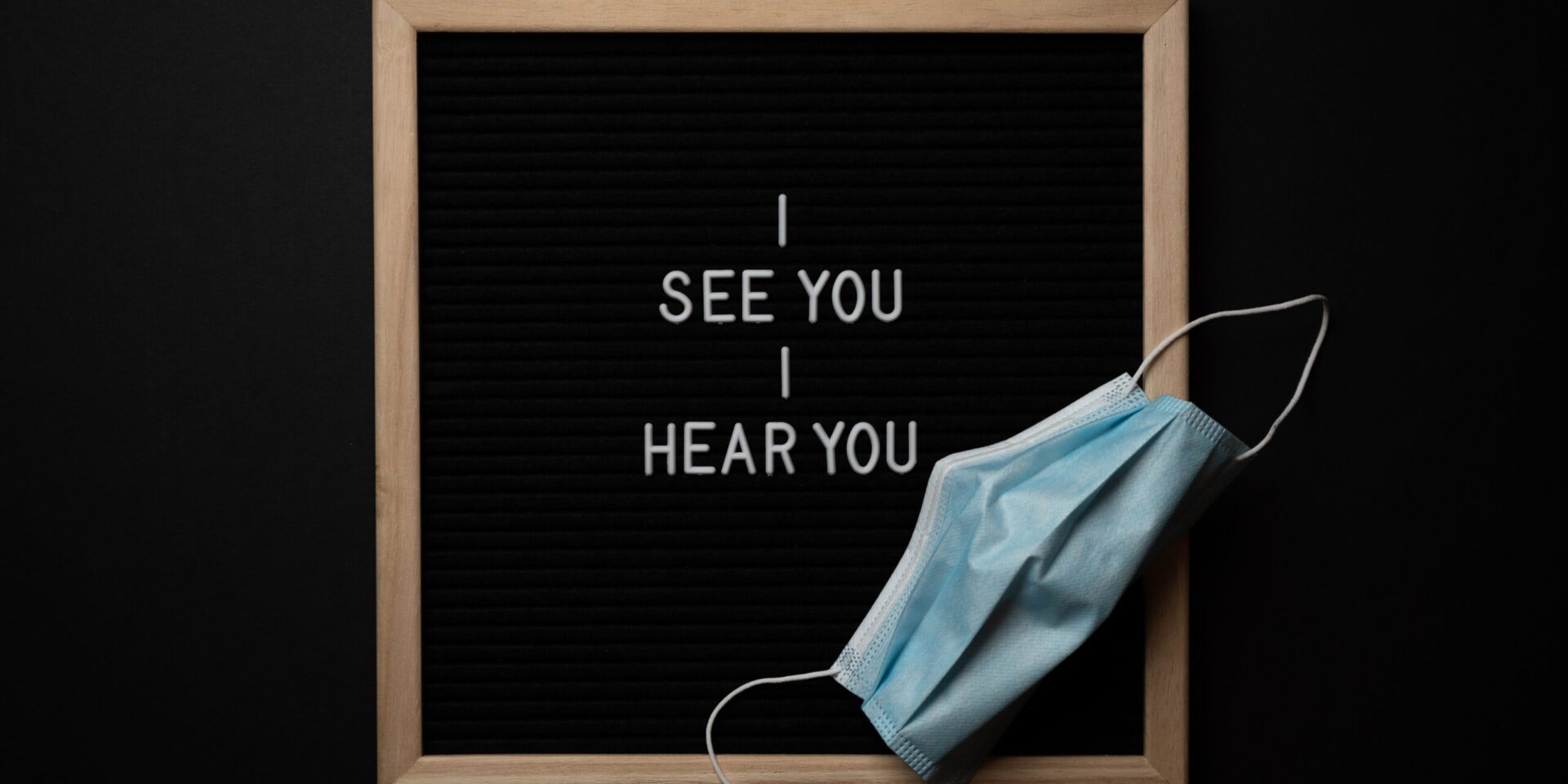Yet Another Form of Discrimination: COVID-19
There is most certainly a stigma associated with COVID-19 whether people realize it or not. Family, friends, co-workers, and associates’ fear and anxieties around the virus fuels a certain response to those affected now or to those who have been affected by the virus in the past. However, they themselves are hesitant to be associated with the negativity from society.
Undoubtedly, there is fear when it comes to COVID-19. The news and the posted death toll is astounding, however, what we do with that fear and anxiety can be either adverse or supportive to others. That fear is typically based on three components: the newness of the virus, that we as human beings are naturally intimidated by the unknown, and the ease with which we can project our fears onto others.
History has demonstrated that generalizing our fears can be dangerous. It undermines the community strength and cohesiveness that is needed now more than ever. This kind of divisiveness impacts our abilities to attack COVID-19 head-on and is a distraction from preventing the spread of infection.
The stigma that comes with COVID-19 risks and exposures discourages people from seeking healthcare sooner rather than later. It discourages people from taking on the healthiest of practices. And it drives people to hide their illness to avoid being shunned from their circles and society at large, or, worse yet, discriminated against.
Let’s not exacerbate matters by emotionally isolating others. Do offer a helping hand versus an avoidant dismissive cross block. Let’s stop asking people what they have done wrong or quiz them on their whereabouts as if they were irresponsible or risky. Especially do not criticize our first responders and essential workers for voluntarily doing righteous and priceless work that benefits us all.
There are more things that we can all do to avoid the stigma associated with COVID-19. Some of these things include, but are not limited to:
Do watch what you say. Encourage others to do the same. Don’t repeat all the warnings about the virus. This is no time for a lecture. Be aware of the language used. There’s no need to mention offensive and divisive terminology such as “Chinese” or “Wuhan.” The official name of this condition is COVID-19 (Corona Virus Disease emerging in 2019) and this is the name we should use.
Do use “people-first language.” Model this language for others so they can adopt this manner of speaking. We are, after all, people first. Let’s not forget that part. People are not defined by their medical conditions or diagnosis. As a society, if we remember to associate a human being with whatever else we need to describe after that, it changes perspective and consideration for ourselves and others. It reminds us to see that there is a person (a mother, daughter, co-worker, friend, neighbor, church member, etc.) and a life at the center of all this. Talk about people acquiring, people recovering from, people contracting, etc… Do not describe people as being spreaders, transmitters, the inflicted, or the infected.
Do encourage people about safety. In particular, focus on effective prevention, recovery, treatment, and the option of vaccination. Encourage others to do the same. Most people that contract the virus pull through. There are things that we can all do to keep ourselves and our loved ones safe. This we do have control over and should do to the best of our ability and circumstance.
Do not share information you are unsure of. Direct people to resources that are reputable instead of assumptions, inaccuracies, “my friend says,” or making religious references to a disease that is the sign that the “end of the world” is upon us.
Do watch what you do. Be aware of the stigma and personal biases. Try not to do things that drive people away, but rather encourage support. Offer resources without assuming one has not sought them for themselves. Ask people open-endedly how you can be supportive. Encourage others to do the same
Do show appreciation and honor. It takes trust and courage for someone to share their experience with or exposure to COVID-19. When someone expresses that they have been impacted by COVID-19, be aware of your physical and verbal responses. Do your fears possibly come blasting through? Does some version of the “NO-NO” hands come up? Have you asked them if they are joking as a first response? Do you possibly keep insisting that people get tested over and over for your wellbeing or possible denial, or your own peace of mind, rather than for their best interest based on their current health status and well-being? Do you possibly drive fear into family members and caregivers who are close to people that may be affected? Instead, listen, offer support as appropriate, empathize, and share well wishes.
Do support and extend our gratitude. Caretakers, healthcare workers, and providers of direct care and service to others may be isolated and stigmatized based on their chosen career path and passion for helping others. They are heroes to society and their commitments and drive never cease to amaze me.
Every week when I engage in conversation with our case management team, I become more and more impressed with them. Family home providers and staff who are on the front line of day-to-day care provide service without flinching. The people we support and serve through our agency continue to trust us to keep them healthy and safe with consistent services sturdy under their feet during this pandemic and beyond. I am proud to work with case managers, office support staff, families, and community medical professionals in a collaborative effort for safe physical and emotional health and quality service delivery.
COVID-19 is a wicked hurdle and has taken a lot of lives along the way, but let’s not allow it to drive a stake through our investments and commitments to one another as a society. We are people who stand side by side with one another. Discrimination and strikes to any of us weaken the wall of humanity and our abilities to fight COVID-19.
Let’s take care of one another whenever and however we can with respect, dignity, and good intention.
Love, health, happiness, and well- being from quarantine,
Ingrid Rushing-Spiva, Founder/CEO
[/et_pb_text][/et_pb_column][/et_pb_row][/et_pb_section]


